- Learning time
- 30 minutes
- First play time
- 90 minutes
Oltre Mare
Designed by: Emanuele Ornella
Oltre Mare (“Over seas”) sees you as a Merchant of Venice striving to become the best trader. In your way are the other players, and dastardly pirates…
The board is placed centrally and players are randomly assigned a starting position for their ship – the card used to assign starting positions will be your first freight card, which represents what your ship is carrying. Everyone is dealt four ware cards, and the game begins. On your turn, you go through four phases:
- Check hand limit. The top card on your freight deck tells you how many cards you can have. If you have over this limit, any excess go face-down in your own pirate stack. Pirates are bad!
- Trade. You can now trade with other players: wares for wares, wares for money, a mix of the two, or even giving things away or accepting them for free. The reason gifts get given is players will be avoiding breaking their card hand limit (see Pirates above!)
- Play card/s. The top card on your freight deck also tells you how many cards you can play. Every card has at least one action, and you action all the cards you play: getting you money, ware cards, pirates (bad), and ship movement on the board. Moving your ship gets you harbour bonuses, which are handy both during the game and at the end of it.
- Add all your played cards to your freight deck, in the order of your choosing.
The order your cards are in your freight deck is very important for scoring, which happens both halfway through and at the end of the game (which happens when the ware deck runs out): wares are scored in sets, and must be bunched together in order to maximize your reward. For instance 2 gems and 5 wheat bunched together will get you 17 money in total, but if they are all jumbled up you might only get about 6 money instead. So you really don’t want to go scattergun on how you load your ship!
On your turn you can buy wares, either from the ware deck or from your pirate stack. During the interim scoring players score whatever is on their ship (the ship gets emptied, apart from the top card on the freight deck) and money is also awarded for trading: during play, when trades are made the non-active player gets a prestige token, and these are totted up during scoring. At the end of the game this process is repeated, and players also score for having the most harbour bonuses as well. Lastly, every pirate card in your pirate stack is minus one money – and the richest player wins.
The guru's verdict
-
Take That!
Take That!
There's no combat, so the worst someone can do is refuse to trade.
-
Fidget Factor!
Fidget Factor!
The down-time in Oltre Mare is pretty much non-existent. If it's not your turn, you still have the opportunity to trade, and if you don't want to trade you need to be watching what your opponents are up to...
-
Brain Burn!
Brain Burn!
Unless you have card-counting capacities you want to employ, the brain-burning is moderate at most. You do need to balance your hand with what your freight card says your hand should be, and balance THAT with how many cards your freight card says you can play. But although that is starting to sound rather complicated, in actuality the options are minimal, and you often go with a hunch in trading.
-
Again Again!
Again Again!
Familiarity speeds this game up enormously, and variety is guaranteed by the cards.

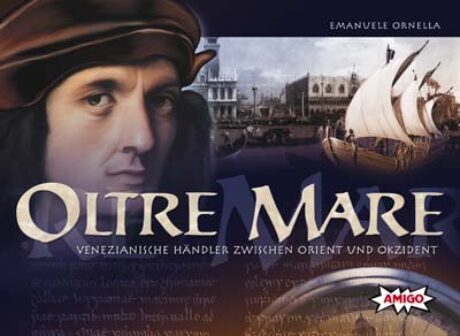



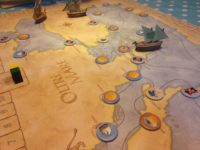
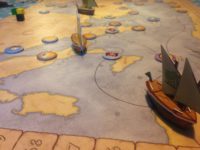


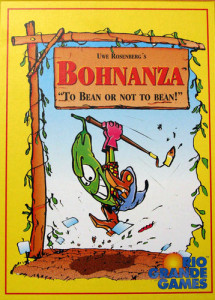
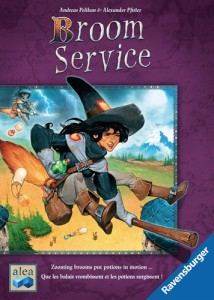
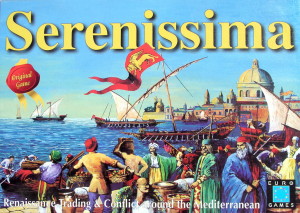
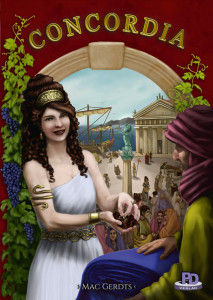
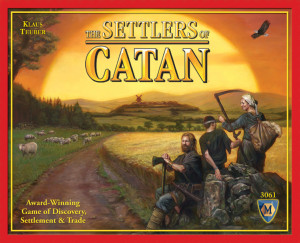
Sam says
Oltre Mare isn't dripping with theme: at no stage playing it do I feel the wind in my hair or the fear of pirates sending a chill down my back. And design of the board and cards errs toward functional rather than beautiful. But the actual play is great: you don't want to give your opponents what they want, but if it's clogging up your hand you may be forced to - the alternative is more pirates counting against you at the end of the game. And the juggling of your hand is just very well conceived - everything has an if or a but attached, and the game even makes room for extravagant bluffs; where you can eke a good price from someone for a card you're secretly desperate to get shot of!